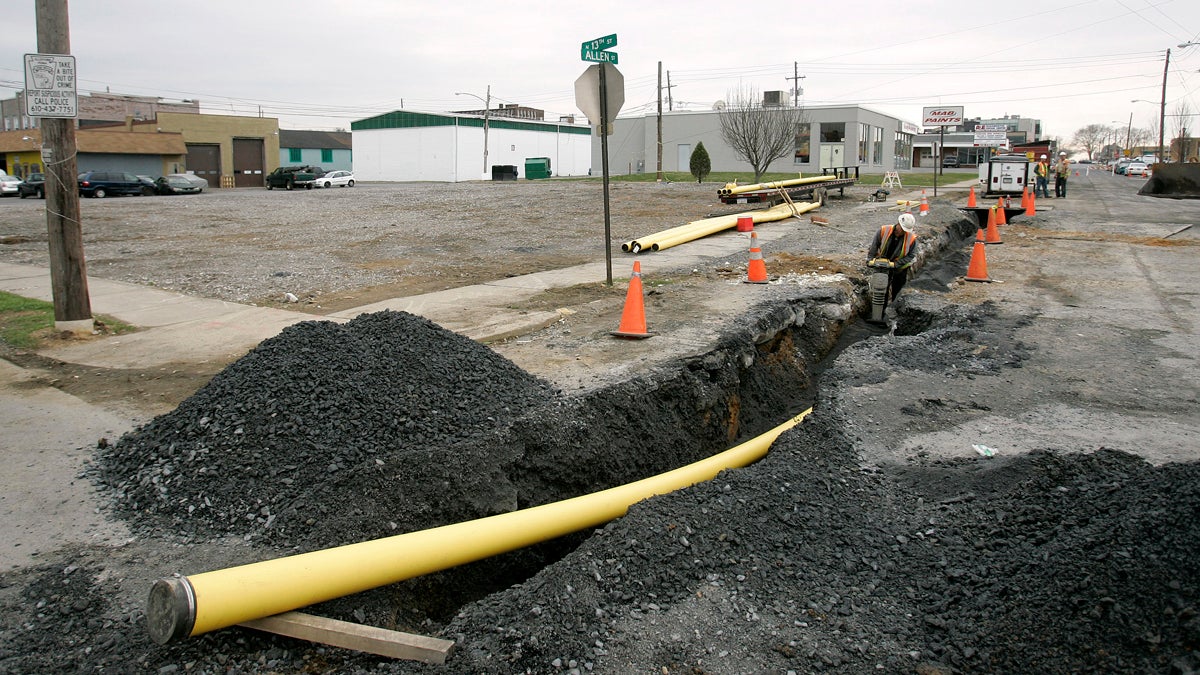New pipeline will carry natural gas liquids across state to Delaware County refinery

A crew member from tamps backfill over a new natural gas main that was replaced at the intersection of 13th and Allen Street in Allentown Pa. Monday, April 4, 2011. The main is replacing the original that leaked causing the gas explosion that killed five people in Allentown on Feb. 9. (Rich Schultz/AP Photo, file)
Construction is set to begin this month on a pipeline that will connect a refinery outside Philadelphia to the shale gas boom in Southwest Pennsylvania.
The pipeline will carry natural gas liquids that are more valuable than regular natural gas. They can also require more caution.
The Mariner East pipeline will bring propane and ethane, which are essential for making plastics. These natural gas liquids are not to be confused with liquefied natural gas, which is regular gas cooled down and put under pressure until it’s a liquid. Southwest Pennsylvania is producing lots of these natural gas liquids.
But in order to get them to a refinery in Delaware County, a company wants to build a new pipeline and connect it to an existing line that right now is set up to take natural gas in the other direction.
That comes with a different set of safety risks if something goes wrong, according to Pipeline safety expert Richard Kuprewicz.
“It’s an entirely different emergency response,” he said
Natural gas liquids behave differently than natural gas, which is essentially just methane. If a pipeline ruptures, methane will rise into the air.
“The liquid propanes and ethanes, they’ll tend to hug the ground and they don’t have to necessarily be trapped in a building,” Kuprewicz said. “They can detonate on their own.”
Environmentalists including Iris Marie Bloom are sounding the alarm.
“It will come 300 miles across Pennsylvania, threatening every single resident along the whole route of the pipeline with explosions,” Bloom told more than 35 protesters at a rally in Philadelphia this week.
But you shouldn’t lose any sleep over it, said Kuprewicz, because the pipelines can be built to handle any number of safety risks.
“You can’t prevent all failures, but the vast majority, ones I’ve investigated over 40 years have all been preventable. There’s no such thing as an accident,” he said.
WHYY is your source for fact-based, in-depth journalism and information. As a nonprofit organization, we rely on financial support from readers like you. Please give today.

